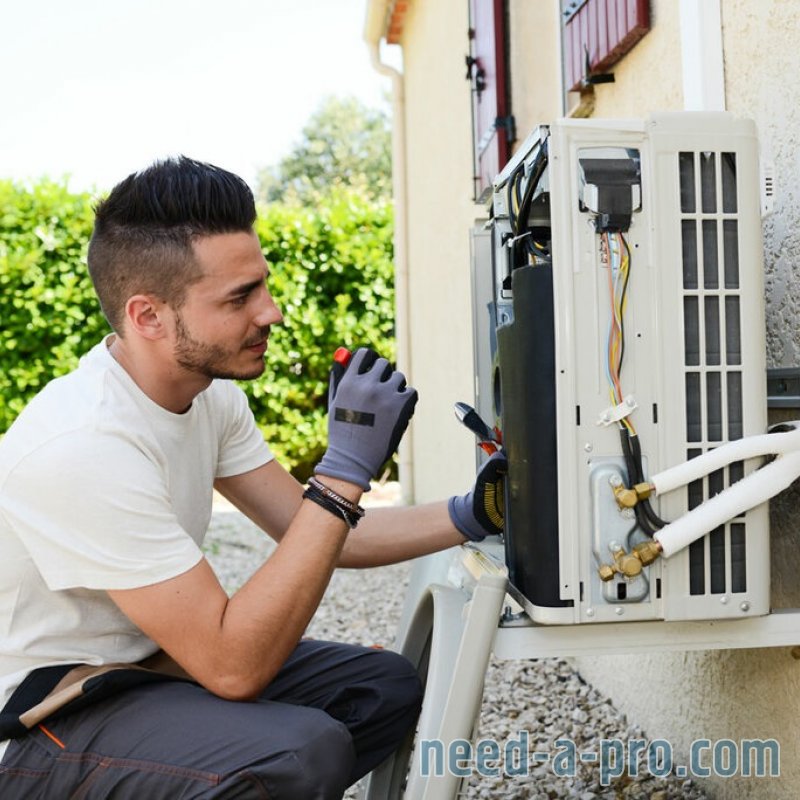In the modern world, energy savings is a pressing concern for homeowners and companies alike. One of the most significant areas for improving energy efficiency is through heating, ventilation, and air conditioning systems. If you are looking to reduce your monthly expenses or enhance the comfort of your living or working environment, grasping the basics of HVAC is essential.
This beginner’s guide will examine what HVAC is, equipping you with the insight needed to tackle common HVAC problems and maintain your system efficiently. We will discuss practical tips for boosting energy efficiency, including selecting the right HVAC system to tweaking thermostat settings for each season. Come along as we uncover the methods that can help you reduce costs while ensuring a pleasant environment year-round.
Grasping Heating, Ventilation, and Air Conditioning
HVAC, an acronym for Heating, Ventilation, and Air Conditioning, is essential for maintaining pleasant indoor environments. It encompasses a variety of systems that control temperature, humidity, and air purity in residential and industrial settings. These mechanisms work together to establish a harmonious atmosphere, guaranteeing that heat is distributed evenly during winter seasons and that cold air moves during the summer seasons.
The working of an HVAC system can be broken down into 3 primary parts: warming, ventilation, and climate control. Heating systems, such as boilers and heat pumps, create thermal energy, while cooling systems provide cold air to give comfort against heat. Ventilation is the process of replacing air within a space to eliminate moisture, smells, and airborne diseases, thereby improving indoor air quality. Comprehending how these factors operates enables property owners and businesses tailor their HVAC installations to fulfill their specific requirements.
When purchasing an HVAC solution, factors like fuel efficiency, cost, and the scale of the area must be considered. Modern HVAC units are increasingly engineered with power-saving features that lower both ecological footprint and utility bills. The newest technologies, such as smart thermostats and zoning systems, give homeowners enhanced command over their heating and air conditioning, highlighting the importance of remain updated about choices and developments in the sector. This understanding can result in improved satisfaction and significant reductions in costs over the long run.
Enhancing Energy Conservation
To enhance energy conservation in your HVAC system, begin by ensuring that it is correctly sized for your home. An oversized system can lead to short cycling, where the system cycles frequently, wasting energy and resulting in wear and tear. On the other hand, an too small system may find it challenging to keep comfortable temperatures, leading to extended run times and higher electricity expenses. Talk to a HVAC expert to assess the appropriate size for your HVAC system based on your house’s square footage, insulation, and other considerations.
Regular maintenance is key to maintaining your HVAC system running smoothly. Plan seasonal tune-ups to maintain components, check refrigerant levels, and replace filters as needed. Dirty filters can restrict airflow and force your system struggle, which boosts energy consumption. Additionally, making sure that coils and fans are free of debris can help enhance airflow and efficiency, which in turn reducing your energy costs and lengthening the lifespan of your system.
Add smart technology into your HVAC system for enhanced energy conservation. Smart thermostats allow you to set heating and cooling schedules based on your daily routine, making sure that energy is not wasted when you're not home. air conditioning service can also learn your preferences over time and modify settings on their own for optimal comfort. Moreover, consider temperature zoning that allow you to heat and cool individual zones of your home separately, providing better temperature control and more reducing your energy bills.

Maintaining Your HVAC System
Consistent maintenance of your HVAC system is vital to guarantee optimal performance and longevity. Begin by checking and replacing air filters every one to three months, as clogged filters can obstruct airflow, decreasing the efficiency of the system and leading to higher energy costs. Additionally, keep the area around your outdoor unit free of debris such as leaves, grass clippings, and snow to ensure proper airflow and operation.
Seasonal maintenance checks are necessary for maintaining the efficiency of your HVAC system. Schedule a professional inspection at least once a year, best in spring for air conditioning units and fall for heating systems. During these inspections, a technician can clean components, check for refrigerant leaks, and confirm all electrical connections are tight. This proactive approach not only extends the life of your system but can also avert costly repairs down the line.
Moreover, homeowners should be watchful for any warning signs that could indicate a need for repair. Pay attention to strange noises, rising energy bills, or inconsistent temperatures throughout your home. Addressing these issues quickly can save you from more extensive problems and help maintain a comfortable indoor environment. By committing to regular maintenance and being aware about your system’s performance, you can enjoy efficient heating and cooling for many years to come.
